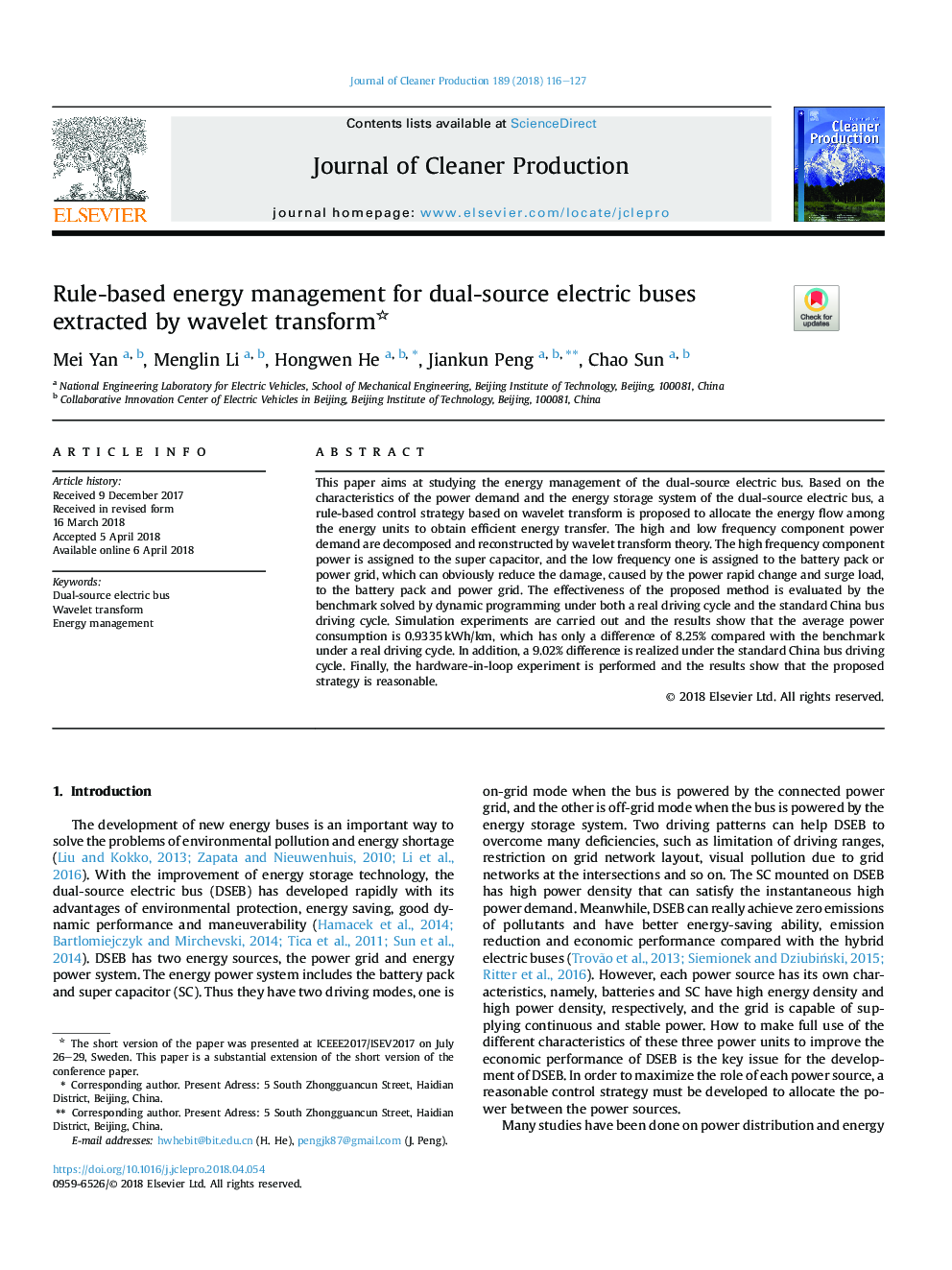| Article ID | Journal | Published Year | Pages | File Type |
|---|---|---|---|---|
| 8095067 | Journal of Cleaner Production | 2018 | 12 Pages |
Abstract
This paper aims at studying the energy management of the dual-source electric bus. Based on the characteristics of the power demand and the energy storage system of the dual-source electric bus, a rule-based control strategy based on wavelet transform is proposed to allocate the energy flow among the energy units to obtain efficient energy transfer. The high and low frequency component power demand are decomposed and reconstructed by wavelet transform theory. The high frequency component power is assigned to the super capacitor, and the low frequency one is assigned to the battery pack or power grid, which can obviously reduce the damage, caused by the power rapid change and surge load, to the battery pack and power grid. The effectiveness of the proposed method is evaluated by the benchmark solved by dynamic programming under both a real driving cycle and the standard China bus driving cycle. Simulation experiments are carried out and the results show that the average power consumption is 0.9335â¯kWh/km, which has only a difference of 8.25% compared with the benchmark under a real driving cycle. In addition, a 9.02% difference is realized under the standard China bus driving cycle. Finally, the hardware-in-loop experiment is performed and the results show that the proposed strategy is reasonable.
Keywords
Related Topics
Physical Sciences and Engineering
Energy
Renewable Energy, Sustainability and the Environment
Authors
Mei Yan, Menglin Li, Hongwen He, Jiankun Peng, Chao Sun,
